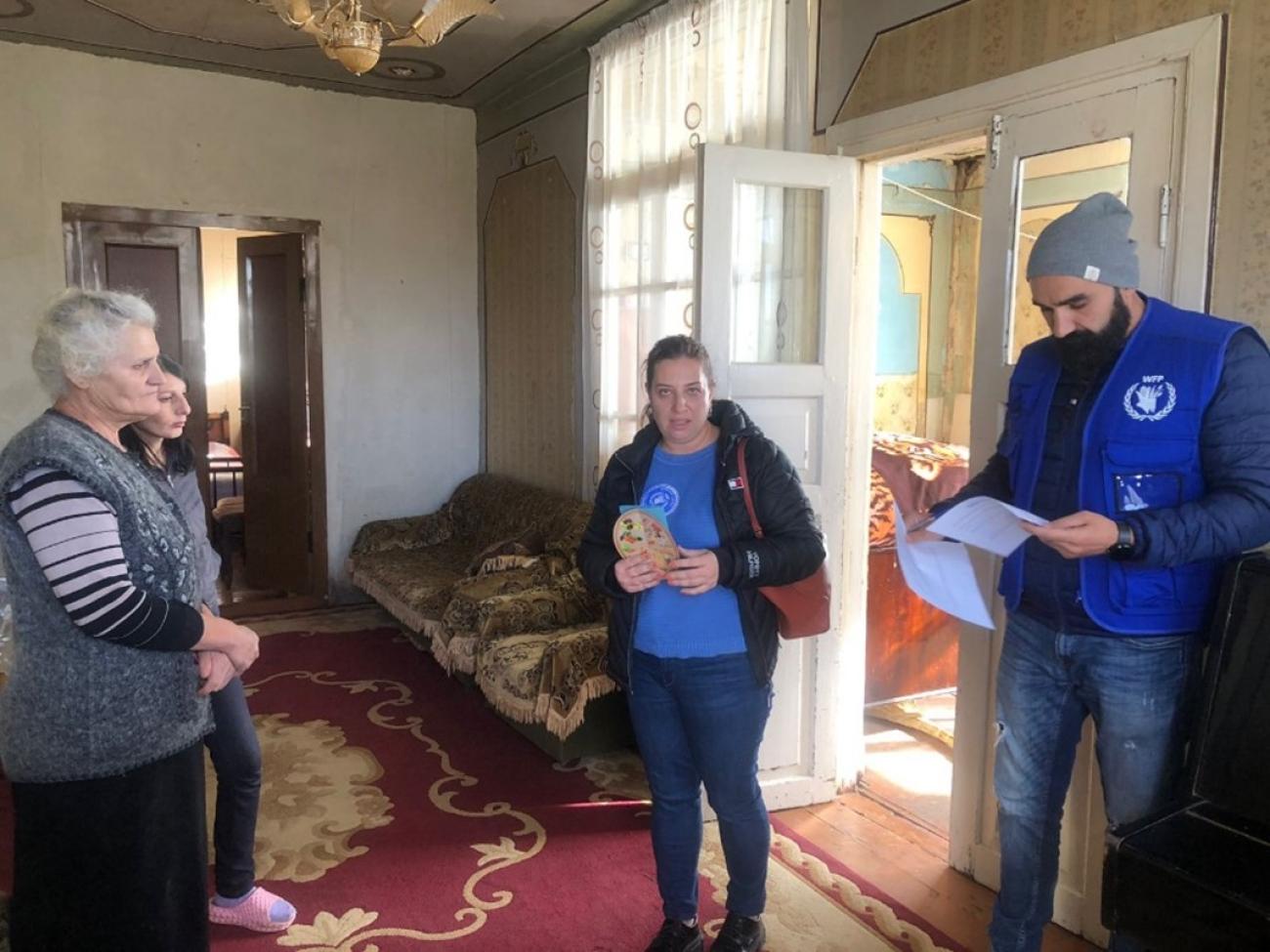WFP and USAID representatives visited WFP’s “Food Card” pilot project beneficiaries to understand the existing humanitarian needs and food security challenges.
Recently, Andrew Golda, Deputy Director of USAID/Armenia’s Economic Growth Office, John Patterson, USAID's Bureau for Humanitarian Assistance Regional Humanitarian Advisor, Astghik Grigoryan, USAID/Armenia’s Project Management Specialist, and Nanna Skau, WFP Armenia Officer-in-Charge visited a family in Gavar community that benefits from the WFP’s “Food Card” project. The food card project helps food insecure families of Gegharkunik and Shirak regions gain access to food by providing cash through bank cards they can use to buy food from selected supermarkets. The food card helps these families to access food and save income to address other essential needs. The project also includes information sessions about how to have a more diverse diet, taking into account the food budgets of the households.
During the mission, the representatives emphasized the importance of community development projects that improve health and well-being of people and help them overcome hardships caused by recent shocks and crises.
Nanna Skau, Adrew Golda, John Patterson and Astghik Grigoryan met with Anush Movsesyan's family of 10, who are amongst 27 families in Gavar community receiving support through “food cards”. They live in poor conditions and have limited access to food. Anush explained that WFP’s assistance provided them with a choice over what they ate.
“Today I was finally able to buy canned meat; when the children come home from school, they'll be thrilled to find out that they are going to eat meat," she added.
WFP’s project incorporates humanitarian and development initiatives to address the population's present food security issues and ensure long-term effective support for enhancing their livelihoods.
In partnership with USAID, WFP is scaling up its pilot and launching the “Integrated Response to Increased Food Prices in Armenia” project that aims to improve and strengthen shock-responsive policies and promote social assistance tools for more than 3000 food-insecure populations over the next 15 months.







